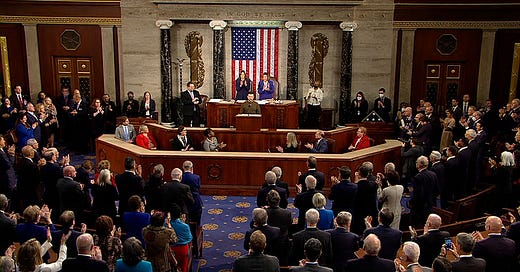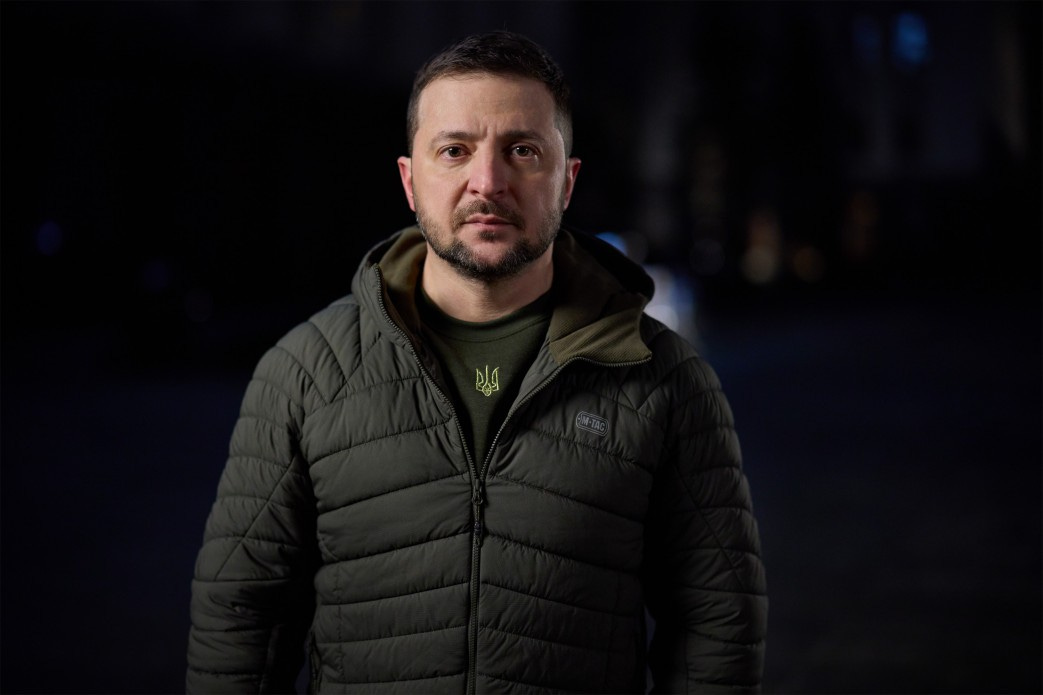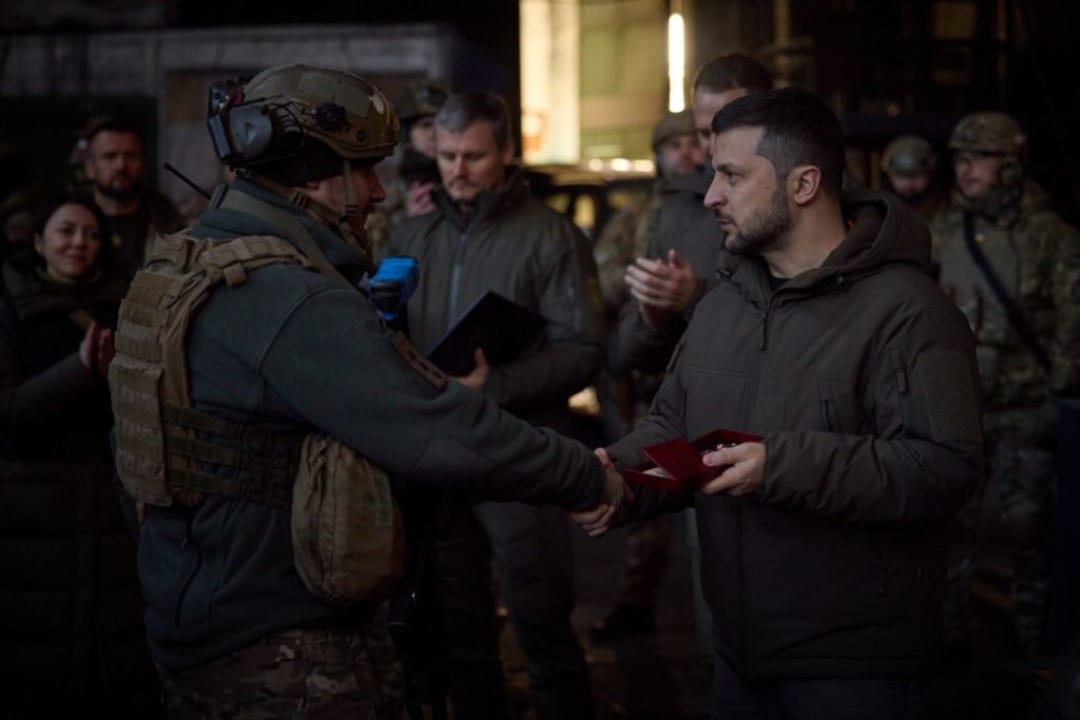Since the beginning of Russia’s invasion of his nation, President Zelensky has harnessed the full range of resources available to Ukraine. Whether it is the mobilisation of Ukrainian people for military or civil defence purposes, to conduct cyber operations, engage in the global influence campaign or to simply keep their nation running, Zelensky has been the leader that Ukrainians look to.
Of all the resources that Zelensky has applied to halt and throw back this vicious assault on Ukraine, perhaps one of the most powerful has been his use of the written and spoken word. He has leveraged language to inspire his people, provide purpose for his soldiers and his government, to share the tragedy experienced by his people and to celebrate their successes as well.
This is a rare skill. Few are able to master the right language for a given moment, while also ensuring the right audiences are engaged, or inspired, by the core messages. To this end, Zelensky is quite rightly compared to Sir Winston Churchill.
Mobilising Language in Defence of Ukraine
Churchill was a superb writer and orator. President John F. Kennedy, speaking in 1963, said of Churchill that:
In the dark days and darker nights when Britain stood alone—and most men save Englishmen despaired of England’s life—he mobilized the English language and sent it into battle.
Zelensky has certainly mobilised language and sent it into battle since 24 February 2022. His quote that “I need ammunition, not a ride” is sure to be used in everything from military doctrine to corporate leadership speeches for decades to come. His New Year’s message for 2022, likewise provided several memorable passages, including the following:
I'm here. We are here. You are here. Everyone is here. We are all Ukraine.
The war in Ukraine has seen a massive expansion in the use of social media by all sides: Ukraine, Russia and its supporters. No longer just a way to rapidly report newsworthy events or issue government missives, it has been leveraged in this war by governments, corporate entities, humanitarian institutions, crowd funders and individuals to map the progress of the war, deliver rapid battle damage assessment for strikes against key targets, provide assessments about the wars progress, examine many different aspects of military institutions and inspire foreign observers.
Zelensky, and what is assumed to be a supporting strategic communications staff, have overseen perhaps the best example of modern strategic communications by any democratic nation. Not only has the Ukrainian military mastered operational security while showing off the many achievements of its soldiers, it has become expert in trolling its enemies. Other Ukrainian government departments have also played their part.
The aggregated efforts of Ukrainian online activities, and their investment in a robust telecommunications infrastructure, has resulted in stories from the war being available globally and in near real time. It has allowed the world to see the debased behaviour of Russian soldiers in places like Bucha, Lyman, Kherson and beyond. It has allowed journalists access to a massive audience, and analysts to share observations. And it permits a generation of people, who never expected to see such a war in their lifetime, to understand the reality of war.
But the centre of it all has been Ukraine’s President Zelensky. His almost daily speeches, including talks to world institutions, universities and other groups, are available in Ukrainian and English, in video and written forms.
Two Speeches in December
Just before Christmas last year, Ukrainian President Zelensky gave two speeches. One, an address to a joint sitting of the US Congress, was televised live around the world and provided important messages on supporting Ukraine’s war effort for US lawmakers, the US administration and the American people more broadly. Quite rightly, Zelensky’s speech was the focus of several news cycles and much commentary in newspapers, television talk shows and social media.
But Zelensky gave a second speech just a few hours before departing for his visit to Washington DC. Visiting his soldiers on the front line during the continuing Battle of Bakhmut, Zelensky met with the troops, presented awards for valour and was presented with a signed Ukrainian flag.
At first glance, these were two entirely different audiences. One, the lawmakers of the richest and most powerful nation on earth. The other, a group of weary, grimy soldiers just back from the front line in one of Ukraine’s most vicious ongoing battles. But in examining these speeches, we see in Zelensky a confident orator who understands his audience, is able to tailor the messages for each, and provide them with purpose for their ongoing support and efforts. He can shift his tone depending on location, and to elevate his language to suit to the outcome he desires for each speech. This is a skill he has applied and refined throughout the war to inspire his own people while seeking support and assistance from beyond Ukraine’s borders.
In his speech to the US Congress in December last year, Zelensky described how Ukraine is grateful for the support it has received from America. Throughout his oration, Zelensky showed a deep appreciation for the ongoing support from the American people, Congress and the US administration. It was an important message from Zelensky; he needs the support of those in Congress and beyond who might be sceptical about supporting Ukraine.
Importantly, Zelensky described assistance to Ukraine as "not charity”. Instead, he spoke of it as:
An investment to global security and democracy which we handle in the most responsible way.
This is an important message about accountability and the responsible use of military and economic assistance provided by America and others to Ukraine.
But he also reinforced that now is not the time for negotiations. In his speech he described how “This battle cannot be frozen or postponed.” And he linked this directly to his calls for support. Before Ukraine can defeat Russia, continued assistance will be needed. In calling for more assistance, Zelensky described the need for an expanded range of military support from the US.
Finally, Zelensky used the speech to Congress to again describe this as a war that all democracies have an interest it. It isn’t a war that only concerns Ukraine and Russia or their direct interests. He spoke about Ukraine’s fight being something that connects all free nations. As people in the United States – and beyond – were thinking about their forthcoming Christmas holidays, Zelensky wanted them to think about Ukraine and what they are enduring to defeat a vicious authoritarian bully.
These themes have appeared in many of his 2022 speeches. But they would have been given even greater meaning to Zelensky after his visit to the front lines in Bakhmut just before his American visit. There, he gave a short speech, which bears quoting in part:
Yesterday was St Nicholas Day, I wish that your sun, that is your children, to shine for you, for them to motivate you, to survive for sure and defend your families, our families, our state and the future of your children.
Blockbuster speeches before audiences such as the US Congress or NATO summits are vital for the strategic messaging that Zelensky needs foreign leaders and populations to absorb. However, short, simple speeches such as his December talk to soldiers at Bakhmut also teach us much about Zelensky’s leadership style.
His battlefield visits, and the short talks he delivers during these visits, have many purposes. They permit Zelensky to gain a sense for the morale and capability of his military in the field. He probably reads hundreds of reports each day. But none of them are a substitute for walking the ground with leaders and soldiers who are fighting at the tip of the spear. He can engage with junior soldiers in the field, inspire them, recognise their sacrifice and to reiterate the purpose of their sacrifices.
This direct contact is vital for a leader. It allows him to ask questions. This is an important function of a national political leader in their interaction with military commanders. Even the best staff cannot anticipate all the questions their leaders might have. As Eliot Cohen writes in Supreme Command, such questions were also essential to Winston Churchill’s leadership:
His art of leadership included a skill at questioning and challenging professional subordinates that few others have mastered.
But these visits, while a good opportunity for questions, serve another purpose which Churchill also acknowledged:
In war to see things as they are, and not as one would like them to be, to persevere despite disappointments, to know of numerous opportunities lost and of perils still ahead, to lead knowing that one’s subordinates and colleagues are in some case inadequate, in others hostile, is a courage of a rarer kind that a willingness to expose oneself to the unlucky bullet or shell.
It is this type of courage and leadership that Zelensky has delivered for his country.
In the process, he also demonstrates that he has trust in his nation’s Army. Zelensky shows he is comfortable in placing his life in the hands of the Army - it is an important and strategic trust-building exercise between politicians and military leaders. Throughout the war, it is clear he has set the strategic direction for his nation while allowing the high command to get on with the implementation of national defence. But these visits, and regular briefings, provide dynamic feedback in civil-military relationships.
In this respect, Zelensky differentiates himself from Russia’s President Putin. It is unlikely that Putin will ever visit his troops in the field. This is not because of the threat from the Ukrainians. He would probably be under just as great a threat from his own soldiers, who have been poorly trained, equipped and led during the war.
Of course, these visits and Zelensky’s speeches during them, draw attention from audiences beyond Ukraine. In demonstrating that he is not a ‘bunker leader’, President Zelensky shows Western citizens that he is the leader of a nation worth supporting ‘to the end’. This is important as inflation and energy costs rise in Europe and beyond. And as attention turns to other challenges besides Ukraine.
The Centrality of Belief in a Purpose
General Dwight Eisenhower wrote in his book, Crusade in Europe, that:
Belief in an underlying cause is fully as important to success in war as any local espirit or discipline induced or produced by command or leadership action.
Whether he is speaking at the front lines with his soldiers, or in the legislature of the most powerful democracies, Zelensky wants his own people, his enemies and the rest of world to believe that Ukraine can and will win this war. At heart, his speeches and all of his strategic communications activities, are about providing purpose which people can believe in.
This where Zelensky’s leadership and talent for strategic influence intersects. He is able to craft a message for his own people, his government, his soldiers as well as politicians and citizens in foreign countries that describes the importance of supporting Ukraine in resisting the Russian invasion. He leverages new and old media to transmit his key messages and speeches in Ukraine and around the world.
Zelensky adroitly uses the written and spoken word to outline why defending democracy is important. And he uses plain, accessible language to explain why the price of doing so is much less than not doing so.
President Zelensky has demonstrated physical and moral courage and set an example for his own people. The moral clarity of good versus evil in this war, and Zelensky’s speeches about it, has been a vital foundation for the ongoing external support provided to Ukraine.
This blending of leadership and global influence is what makes Zelensky a rare leader. And it is what also makes him essential to the defence of his nation, the protection of democracy more broadly, and the finest national leader of the 21st century so far.







Thanks for another fine essay.
Perhaps this parallel with Churchill is also worth considering :--
Churchill was a Tory statesman in a union where there was a fairly stable system of parties, in which the Conservatives & Labour parties dominated. Ukraine's parliamentary structure is much more volatile, in which Zelenskyy's Servant of the People Party dominates as a Burger-Democrat or mainly-supportive-of-capitalism party.
Yet in my reading of the situation, Churchill was able and Zelenskyy is able to maintain a temporary truce between left and right 'for the duration'. That's to say that Zelenskyy is largely trusted by the left to avoid exploiting his wartime executive power to surreptitiously introduce needless restrictions on labour. (While there has been some complaint about proposals by the parliamentary Servant of the People Party, it has not been directed at Zelenskyy himself.)
Zelenskyy also seems to have the tentative support of forces to the 'right' of his party, such as Peter Poroshenko and European Solidarity party.
Happy New Year to all readers.
In the "we're here" part in the new year's speech, he's also quoting himself, cf. https://slovodnya.substack.com/p/were-here